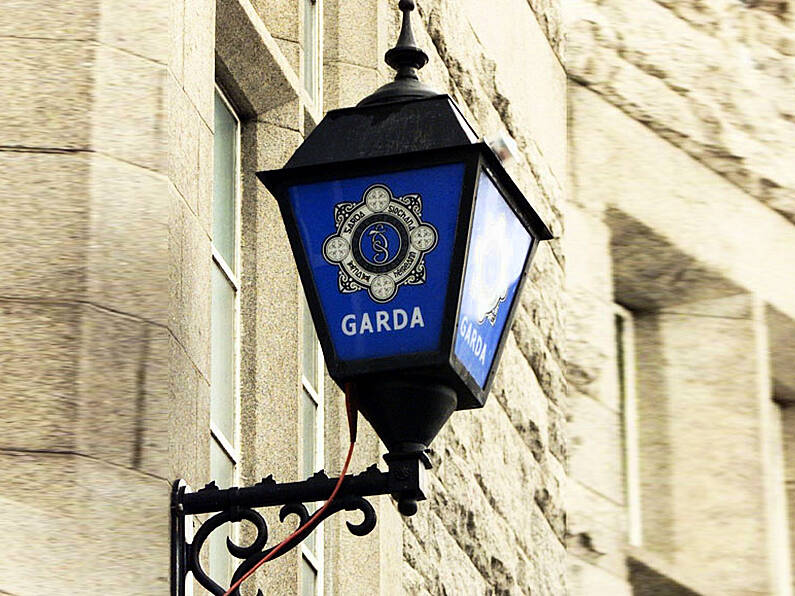There are a number of new developments and initiatives marking World Mental Health Day in Ireland, along with a reminder of the resources available to those who are struggling.
Government ministers have launched a new structure to implement national mental health policy, along with a national framework for student mental health.
“When there is a lot going on it’s easy to forget to take time for ourselves. This year, as we continue to learn to live with Covid-19, we want to remind everyone that things like eating well, taking time out, and managing our news intake can all have a positive impact on our mental health,” National Director of HSE Community Operations, Yvonne O’Neil, said.
The HSE has recommended five steps to help people look after their mental health:
- Keeping active - Being active every day, something as simple as a walk is proven to have a positive impact on your mood.
- Talking about your problems - Problems feel smaller when they are shared with others. They don't always have to be solved - just talking about it will do you good.
- Looking out for others - Lending an ear to someone else in trouble, or catching up with someone who seems distant, can make a difference.
- Eating healthily - A regular healthy, balanced and nutritious diet will help both your physical and mental health, and have a positive impact on how you feel.
- Sleeping well - Getting a good night's sleep of seven or eight hours, as often as you can, will have a positive impact on how you feel.
Resources
The HSE is encouraging anyone concerned about their own mental health or the mental health of someone they care about to visit YourMentalHealth.ie or to call its information line on 1800 111 888 any time day or night.
The website provides information on mental health supports and services available nationally and locally, including online resources, telephone and face-to-face services, with the HSE reporting traffic to the site had increased by almost 100 per cent over the last year.
Mental Health supports available include:
- Calling the Samaritans on 116 123.
- Texting YMH to 50808.
- Online counselling services at www.mymind.org or www.turn2me.ie.
People are also encouraged to speak to their GP, who can offer support and advice around a range of mental health issues including feelings of sadness, anxiety, self-harm and psychosis.
Pieta House is also providing help to those who are struggling with the launch of a new free video counselling service, which can be accessed by calling 1800 247 247.
Pieta House’s crisis helpline has answered over 10,000 calls since the beginning of the pandemic in March.
New policy
Minister of State for Mental Health & Older People, Mary Butler, announced the establishment of the National Implementation and Monitoring Committee structure (NIMC) responsible for “driving and overseeing” the implementation of new mental health policy.
The refreshed national mental health policy, Sharing the Vision, was published in June and sets out “a progressive shift in mental health service delivery from volume of supports provided to outcomes achieved for people using the services.”
The policy seeks to enhance mental health services across a range of supports, from mental health promotion, prevention and early intervention to acute and specialist services.
Minister for Health Stephen Donnelly TD said said that mental health remained a priority for Government and the establishment of the new committee structure was a “significant milestone on our journey to change the landscape of our mental health services.”
Minister Butler said: “As we continue to live with Covid-19, the successful implementation of Sharing the Vision is critical in providing a framework to enhance our mental health system and enable our mental health sector to rise to the challenges we face now and those that are to come.”
She said the new committee structure would be “crucial to maintaining momentum throughout the 10-year lifetime of the policy.”
Students
Ireland’s first ever national framework to address student mental health and suicide prevention has been launched today by Minister for Further and Higher Education, Simon Harris.
The new framework was developed in collaboration with students, mental health and suicide prevention specialists, academics and researchers.
It delivers on a commitment to develop national guidelines for higher education institutions in relation to suicide risk and critical incident response, using a €5 million package announced to support students’ wellbeing and mental health this year.
Minister Harris said mental health remains the number one health issue for younger people in Ireland.
“These concerns have been compounded by the isolation and uncertainly brought forward by the Covid-19 pandemic,” he said.
“Mental health has been defined by the World Health Organization as ‘a state of wellbeing in which the individual recognises their own abilities and is able to cope with normal daily stresses in life’.
“We know many students face mental health difficulties but we also know some students will face greater challenges than others including those in the LGBTQ+ community, international students, asylum seekers, mature students.”
Minister Harris also referenced the additional support available through a the 50808 free and anonymous text support service on campuses, providing “everything from a calming chat to support for people going through a mental health difficulties” with volunteers available 24/7.
Schools
A mental health support leaflet for young people was also launched today, which will provide details of a number of HSE-funded national organisations that provide mental health supports to young people.
The leaflet is a collaboration between the Department of Health and the Department of Education and Skills, with assistance from the HSE, and will be circulated to 4,000 schools around the country.
Minister for Education Norma Foley said: “The promotion of wellbeing and positive mental health for all of our children and young people is a whole-of-government issue and this is more important than ever during the Covid-19 pandemic.
“Schools play a key role here by providing supportive and protective relationships, fostering a sense of belonging and connectedness and supporting the development of adaptive skills.”






